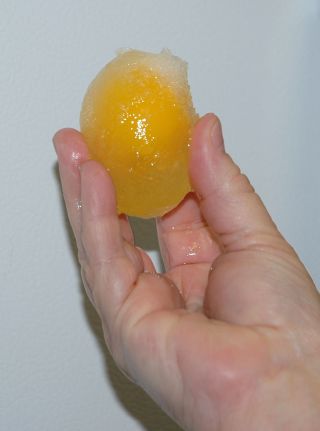
Pregnancy
Fertility Clinics and False Hope
Fertility expert says women are misled about the likely success of egg freezing.
Posted July 2, 2014

When I wrote Pandora's Baby, my book about the early days of in vitro fertilization research, I came to know the name Lord Robert Winston. Originally he was an opponent of the British scientists whose research led to the world's first test tube baby, Louise Brown; later, according to one of the scientists, he wrote to them to apologize for his constrained vision about the brave new world of reproductive technology.
Now Lord Winston, age 73, is offering another constrained vision. And while I thought, at least in retrospect, that he was wrong about his fears regarding IVF, I think this time he's right. His complaint is with the fertility industry itself, which he calls an unregulated "jungle" that makes misleading promises for the sake of the bottom line.
In his recent interview with the Independent, Winston was talking about fertility treatments in the UK in particular, where much of it is regulated by the Human Fertilisation and Embryology Authority (HFEA). He accused HFEA of incompetence and said its day had passed; I imagine he'd think things were in even worse shape in the wild west of American fertility treatments.
What caught my eye is what he had to say about my own pet peeve of the moment: the bill of goods being sold to women in their late 30s who think they're able to stop the biological clock by freezing their eggs.
"This is now becoming quite a big business," he told Independent science editor Steve Connor. But, he said, it's "really not likely to work," with overall success rates probably less than 10 percent.
"That's not to say it shouldn't be done, provided it's safe," Winston told Connor. "But I don't think people who are having eggs frozen realise just how low their chances of having a baby are."
This is the kind of information I think we need to start accumulating, and getting out to young — or youngish — women in this country, who are spending $15,000 or so to freeze 35-year-old eggs with the expectation that when they wake up in their early 40s ready to have a child, the eggs will be there for defrosting, fertilizing, and voila.
At the end of this rather discouraging article, Connor mentions a bit of hope: the development of a simple urine test that seems able to predict which fertility patients will do well with IVF. The right balance of four particular bacteria in the urine, according to Joop Laven of Erasmus MC University Hospital in Rotterdam, indicates with near-perfect accuracy that a woman will be among the one-in-three IVF patients who achieves a successful pregnancy. If the Dutch test pans out, it would go a long way toward preventing heartache and needless expenditure, in this country as well as in Europe.

